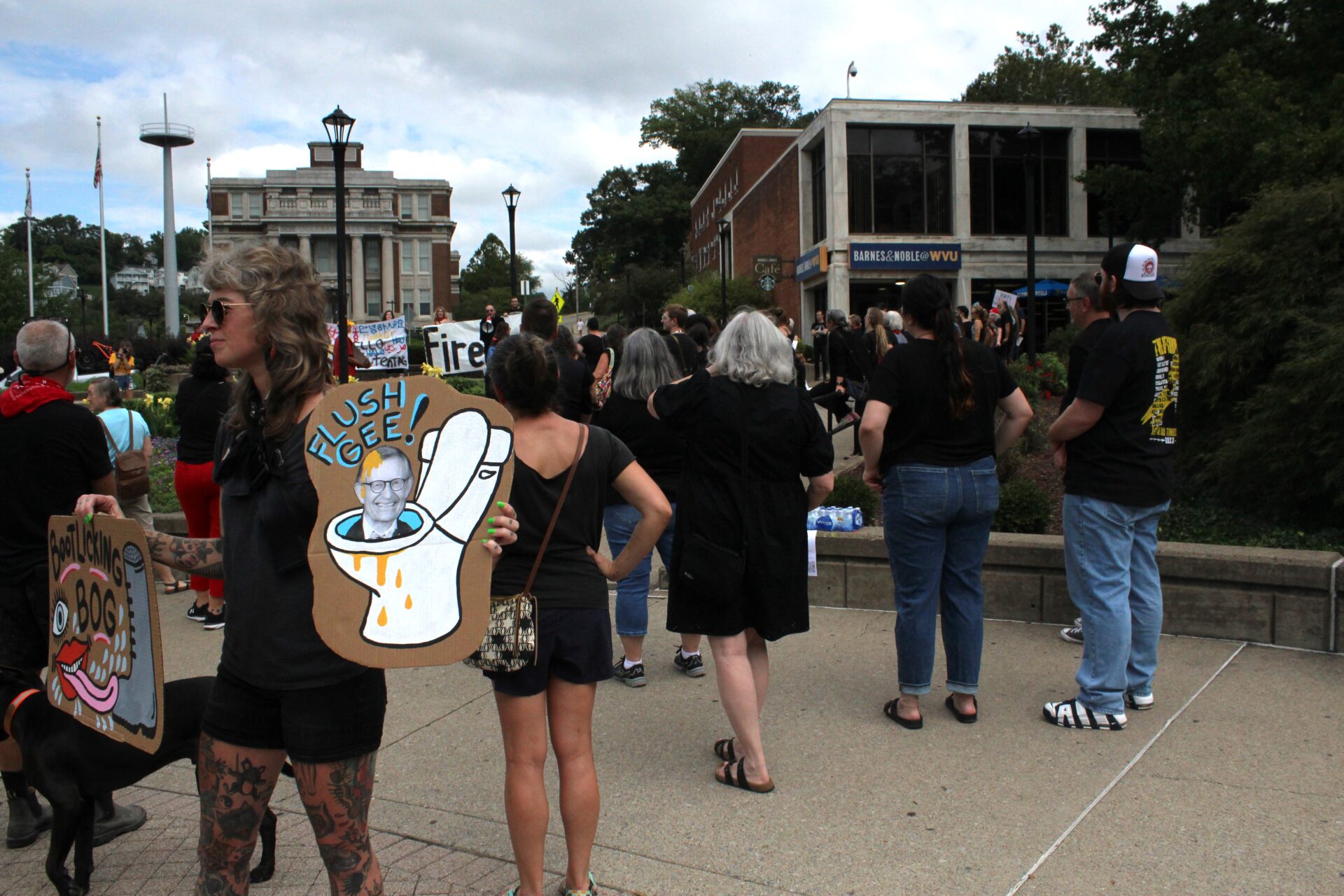Following in the footsteps of current students, West Virginia University alumni came together in front of the university’s student union in Morgantown Saturday to rally against the proposed cuts to programs.
Logan Shamberg is a software engineer who graduated with a Bachelor of Science in mathematics. He helped organize the rally and said he and alumni are done giving to the university.
“We want to educate alumni about where their money’s been going,” Shamberg said. “If WVU doesn’t have its house in order, why should alumni support it?”
Shamberg said financial pressure is a tactic to try and stop future cuts. The university Board of Governors will vote on the currently proposed cuts Friday. Shamberg believes that the board and administration will ultimately do what they want.
“But now they’re having to do it in full view,” he said. “These are people who are not used to scrutiny. We’ve got some very passionate alumni who are looking at this process. If they want to do this, they’re going to do this with the world watching, and we will be sure to announce to the world what they do. So maybe they will think twice next time they decide to try cutting whatever programs are on the chopping block next year.”
Cuts to Academic Support Units are expected to be announced next week, with program reviews set to take place at WVU’s Beckley and Keyser campuses early next year.
During the rally, third generation WVU alumnus Walt Auvil questioned why the West Virginia University Foundation he donated to wasn’t being used to bridge the university’s $45 million budget gap.
“We’re saving it for a rainy day,” he said. “The students and the professors that are affected feel like it’s raining. So if we’re not going to use it for this, what is it for?”
At the presentation of the university’s budget during the June meeting of the Board of Governors, it was outlined that the Foundation will contribute $33 million in “one-time-use resources.”
Auvil also questioned the role of debt and bonds issued for building projects in creating the budgetary deficit.
“What is the percentage of this debt that is debt service on the bonds that were very ill advisedly floated to build buildings that we didn’t need?” he said. “And what about the bondholders? Why is there never a discussion about the people that hold the bonds, the banks, the other financial institutions that hold the bonds that we’re being held over a chopping block for? Why are they not part of the conversation about who can take a cut, can stand to take a cut?”
Many of those present at the rally said that the cuts felt personal.
“First off, many of us have spent a lot of money already here in West Virginia University, on our degree programs, as well as donors, but we also have kids,” said Carisa Collins. She holds two WVU degrees and also helped organize the rally. Collins is concerned her child won’t have access to the same opportunities she had when she attended WVU.
“This is a watershed moment in higher education, where the sorts of cuts that are occurring will take away opportunities that made going to university so important,” she said. “Getting an education at a university like West Virginia University is an extraordinary gift, you have a chance to take courses that you never even dreamed of taking.”
Collins reiterated the unique position alumni have to put financial weight behind their opposition to the proposed cuts.
“We have the opportunity to stop giving and tell the foundation, tell the board of governors in a very unique way that we are done,” she said. “We are done donating to a university whose administration is so fiscally irresponsible, that it feels like our children don’t deserve the intensity of instruction in foreign languages, in mathematics, in creative arts, design, you name it. We deserve all of it and that’s the future we were donating towards. If the university isn’t willing to support that sort of a future we are done giving.”
